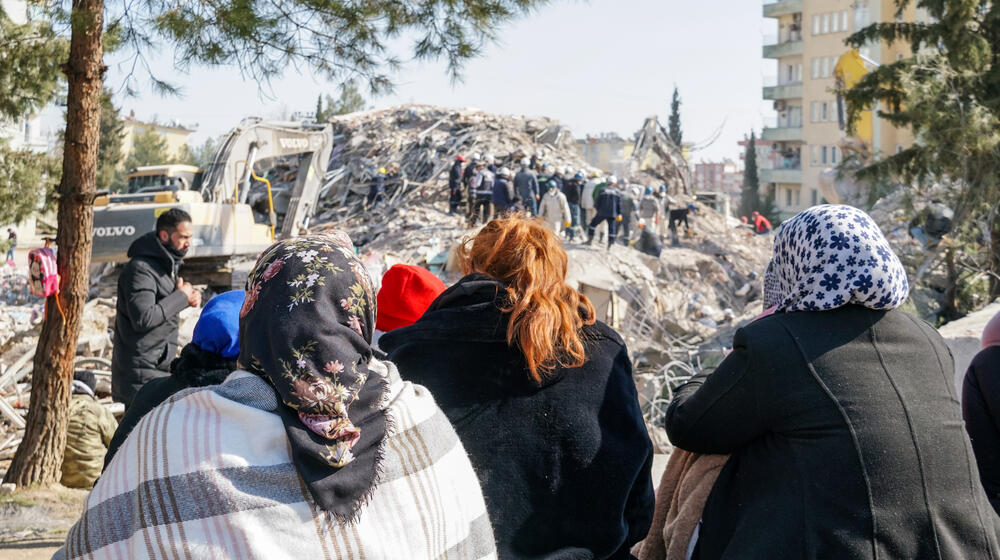After two devastating earthquakes caused widespread destruction in Turkey, women and girls are also at much greater risk of victimization, violence and abuse, as social security and protection services break down and health facilities shutter.

“I’ve seen war, but this is even beyond that.” Fatma, 40, is from Idlib in northwest Syria, but lives with her four children in Adıyaman, in southern Türkiye.
She was also heavily pregnant and had an appointment for a Caeserean section scheduled for 8 am on 6 February – four hours after the worst earthquake in the country’s recent history tore dozens of towns to pieces and killed more than 35,000 people in Türkiye alone.
“We survived a war, a terrible thing, but this was something else. The house was shaking left to right, it wasn’t possible to reach the kids. Stones were falling everywhere… It was very scary.”
The family fled with nothing, narrowly escaping buildings that were collapsing around them. When they arrived at the hospital where Fatma had her appointment, they were met with scenes of horror: The building was destroyed, bodies lay in the street. “We tried to walk to another hospital, but it was too far, and it was impossible to go by car – the streets were under rubble,” she said.
She called an ambulance but was told she had to wait for four days to be moved to a maternity hospital, hours away in Diyarbakır. They were advised to go back home in the meantime. “But there was no home. We were staying at a school. We lived on the streets from Monday to Friday, collecting only supplies to make a fire.”
Although she finally delivered in a closer hospital in Sanlıurfa, Fatma said “My baby’s condition is very bad, I guess because it was a late delivery…The doctors didn’t explain. They didn’t promise my baby would live.”
Delivering amid a catastrophe
Among those affected in Türkiye are an estimated 226,000 women who are currently pregnant – 25,000 are due to give birth within the next month, in the midst of one of the worst natural disasters the region has seen in recent memory.
Kevser is from Adıyaman and heavily pregnant. She was rescued from the rubble of her home by her mother, who used a hammer and her own bare hands to dig her daughter out. She found her after 14 hours, trapped in her bed with the debris from other floors on top of her. Her husband was found alive two days later.
Both are now in stable condition in the hospital in Diyarbakır, but preferred not to stay for the birth so they can give their beds to those worse off. To cover Kevser and the baby’s needs when she delivers in a few weeks, UNFPA gave them a maternal health kit containing essentials such as clothes, soap, a blanket and diapers.
Violence, abuse and shuttered services put lives at risk
In a crisis, women and girls are also at much greater risk of violence and abuse, as social security and protection services break down and health facilities shutter. Yasmin*, 26, is a single mother of five children – the youngest not even six months old. Originally from Deir-ez-zor in eastern Syria, she has been living in Türkiye for five years and is currently taking shelter at a UNFPA safe space for women and girls, set up in a sports hall.
She is separated from her husband, who was physically and emotionally abusive towards her.
“He threatened me, he wanted to take my children away.” UNFPA previously helped her to secure a restraining and protection order against him and provided shelter in a safe space. With her home severely damaged she said, “Now they have moved me to this centre because it is safer.”
*Name changed for privacy and protection.
Source: UNFPA

